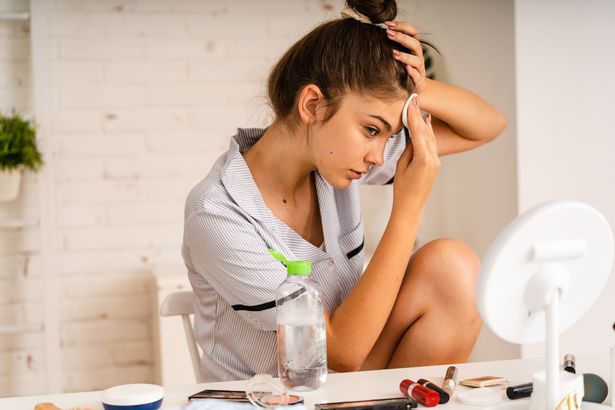"Why I Can No Longer Vacation Due to My Health Condition - OK! Magazine"

NHS England has revealed that approximately half of UK adults experience a skin condition each year, directly impacting an estimated 35 million individuals. With the warmer weather on its way, which often calls for lighter clothing, around 27 million (76%) of those with skin conditions admit to feeling increased anxiety over their appearance.
A significant 77% confess that beauty trends on social media, like the Korean 'glass skin' phenomenon, amplify the stress to maintain an impeccable complexion, a sentiment most acutely felt among millennials. Miriam Martinez Callejas, the co-founder and superintendent pharmacist at Roseway Labs, warns about the detrimental mental health effects such online skin trends can provoke.
She expressed her concerns, noting, 'The impact of social media on its users can be hugely underestimated,' further advocating, 'More research is needed into its psychological effects, but our research indicates it is having a notable influence on how people see themselves – especially young women. A quarter of UK adults with a skin condition said they compare themselves to people they see online.'
An alarming 79% of people with skin conditions have found that GP-prescribed or shop-bought treatments just haven't done the trick, leading them to splash out on alternative products that can sometimes have rather unpleasant side effects. Roseway Labs' research – they're the folks who've teamed up with dermatologists to create personalised skincare solutions for issues like acne and psoriasis – has revealed an increasing trend of individuals seeking new methods to manage persistent skin problems each summer.
Kirsty Robertson, a 49 year old social worker from Glasgow, opened up about living with DSAP and how it's shaken her self-esteem and influenced her travel choices, reports the Mirror.
'I've lived with DSAP for 12 years. It's a skin condition that heightens sensitivity to UV light and can give me multiple dry, scaly rings, mostly on my arms and legs. I have one or two on my face and chest. It's a progressive condition that worsens with even the mildest sun exposure.'
She recounted the distressing evolution of her condition: 'What began as a small circular mark on my wrist gradually spread to patches on my arms and legs within a few years. The only advice I was given from doctors was to completely avoid sun exposure.'
Kirsty also touched upon the profound impact DSAP has had on her life: 'DSAP has impacted my life and mental health. As well as avoiding the sun and covering up, I would avoid going on sunny holidays.
'Social media often portrays images of perfect skin, so it has influenced what I wish I could have – flawless skin. But I found a DSAP patient support group on Facebook and some were talking about a compounding pharmacy that had helped them.
'I discovered a treatment for my DSAP called 2/2 cream – a combination of 2% of two medical ingredients. It's the only product that has really helped me. It's nota cure, but my skin does clear up.
'Most importantly, it has improved my emotional wellbeing. I feel confident about doing things I wouldn't have wanted to before – I now wear a bikini on the beach.
'My advice would be, don't give up if you haven't found something that works. Look for treatments not readily available from your GP. And join support groups with others that know what you're going through.'




